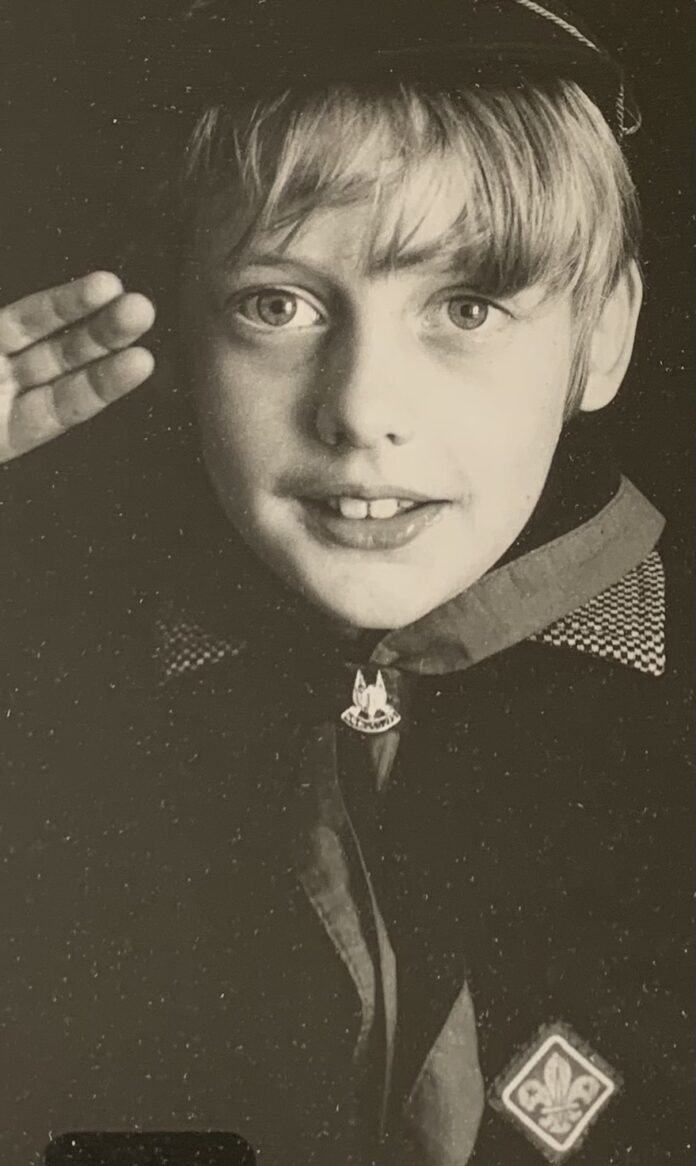- ‘Lies, damned lies etc…’ - 13th February 2026
- Missing in action - 12th February 2026
- Travel news again - 11th February 2026

After a journalistic career based in Wales of 38 years, here our Editor Phil Parry looks at how younger people may have a greater understanding than their elders and supposed betters about the importance of neutrality in news, as well as other crucial issues such as climate change.
Previously he has described how he was helped to break into the South Wales Echo office car when he was a cub reporter, recalled his early career as a journalist, the importance of experience in the job, and made clear that the ‘calls’ to emergency services as well as court cases are central to any media operation.

He has also explored how poorly paid most journalism is when trainee reporters had to live in squalid flats, the vital role of expenses, and about one of his most important stories on the now-scrapped 53 year-old BBC Cymru Wales (BBC CW) TV Current Affairs series, Week In Week Out (WIWO), which won an award even after it was axed, long after his career really took off.
Phil has explained too how crucial it is actually to speak to people, the virtue of speed as well as accuracy, why knowledge of ‘history’ is vital, how certain material was removed from TV Current Affairs programmes when secret cameras had to be used, and some of those he has interviewed.

Earlier he disclosed why investigative journalism is needed now more than ever although others have different opinions, and how information from trusted sources is crucial at this time of crisis.
Young people know the truth.
Polls consistently indicate that it is they who are most worried, rightly, about climate change, as well as other important issues that affect everyone.
I earnestly hope that something concrete comes out of the United Nations Climate Change Conference (COP26) (although the signs do not look good – see story soon) because it seems wrong to leave this terrible legacy to our children and grandchildren.
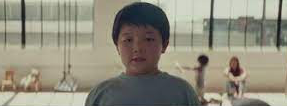
As one young boy says in a television advert for businesses to make a Climate Pledge: “I’m only six, YOU figure it out!”
Young people are aware, too, of how vital media freedom and neutrality are in staying true to ideals they hold dear, yet they are worried that these principles are being eroded.

In the student magazine and website Varsity, one piece declared: “Subjectivity – while perfectly appropriate for editorials, opinion pieces, columns, and blog entries, and occasionally for analyses and features, given that readers are informed that the ideas represented therein are not neutral – has no place in news reporting”.
An American journalism teacher stated: “In my class, at least, student journalists are disappointed by what they see as a lack of neutrality in political reporting, particularly on social media”.


Climate change threatens to alter the world radically for all of us, yet it is young people who are the most vocal in calling for action. A global survey illustrated the depth of anxiety many of them feel about the problem, with nearly 60 per cent who were approached, saying they felt very worried or extremely worried.
More than 45 per cent of those questioned in the survey, said feelings about the climate affected their daily lives. Three-quarters of them said they thought the future was frightening, and over half (56 per cent) believed humanity was doomed. Two-thirds reported feeling sad, afraid and anxious, and many felt fear, anger, despair, grief as well as shame.

On issues happening now, young people are also nervous.
For example – only one in three young Russians want to see Vladimir Putin stay on as president when his term ends.
The Levada Centre, an independent pollster in Moscow, said just 32 per cent of Russians aged 18 to 24 were now in favour of Mr Putin extending his rule, a decline of 23 percentage points from 2018.

Once some of Mr Putin’s most enthusiastic supporters, younger Russians have become increasingly disillusioned with the Kremlin strongman in recent years, amid allegations of high-level corruption.
The president, who does not use the internet, is seen as increasingly out of touch with young people. He was widely mocked last month, when he struggled to understand a schoolboy who asked him to “sign up” to his YouTube channel. “What do I have to sign?” Mr Putin asked. “Sign what? I didn’t understand – what should I sign?”.
Mr Putin’s trust ratings among young Russians have also fallen, from 58 per cent in 2018 to 18 per cent this year, according to a poll published in April.

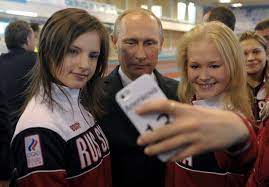
On the question of impartiality in news reporting young people were no less convinced, yet others, it seems, take a rather different view.
An older generation of journalists is questioning whether, in a hyper-partisan, digital world, objectivity is even desirable. “’Objectivity’-obsessed…journalism is a failed experiment”, tweeted Wesley Lowery (age 31), at CBS News. The Dean of Columbia Journalism School described objectivity as an “inherited shibboleth” in a message to students.
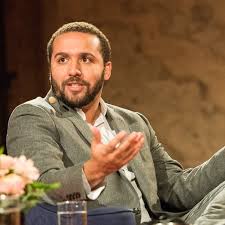
Objectivity has been “turned into a cartoon”, said the Executive Editor of the New York Times, Dean Baquet (age 65).
Disenchanted with objectivity, some journalists have alighted on a new motto: ‘moral clarity‘. The phrase, initially popularised on the right, has been adopted by those who want media outlets to make clearer calls on matters such as racism.
The division between news and comment, which is becoming blurred in newspaper journalism, dissolves altogether on the internet. A study in 2018 found that 75 per cent of Americans could easily tell news from opinion in their favoured outlet, but only 43 per cent could on Twitter or Facebook (FB).

The growing popularity of this kind of ‘journalism’ is closer to home as well. The UK’s Stacey Dooley (who boasts that being untrained makes her a better ‘journalist’), before a BBC Three documentary on coronavirus/Covid-19, admitted that she was “desperate”, and stated on Instagram: “Hi gang, hello, I’m sure you’re sick of these videos that everyone is posting online. I’m working from home for obvious reasons, I’m making a documentary for BBC Three about coronavirus.”

It appears the BBC may have forgotten that executives had to apologise and edit out Ms Dooley’s inaccurate commentary in a Panorama programme which claimed to portray the truth about Islamic State’s (IS) treatment of women, when she wrongly described holding up an index finger as an “IS salute”.
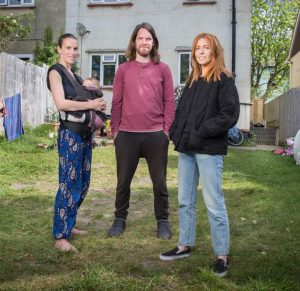
In the past her programmes have been accused of being “poverty porn” and in one UK newspaper they were called “patronising and condescending to the people they’re trying to help”. One of her subjects in ‘Stacey Dooley Sleeps Over’, Adele Allen, said:“In the whole 72 hours she was here I did three early morning dog walks at 6am with the baby and she didn’t manage to make it out to one. She couldn’t get up with me – so there’s the lazy one”.
Wales is not immune either to this growing trend for more partisan, non-objective or non-neutral, so-called ‘news’ that young people dislike so much. It is better, apparently, to push a certain agenda.

 This is shown when a supposedly ‘independent’ news ‘service’ funded by the taxpayer claims to serve all “the people of Wales” yet plainly supports Plaid Cymru (PC), or if the man asking for public money to start a fresh one (Huw Marshall, who used the internet in an attempt to have The Eye closed down) has stood for the same party but claims “we will be politically neutral”.
This is shown when a supposedly ‘independent’ news ‘service’ funded by the taxpayer claims to serve all “the people of Wales” yet plainly supports Plaid Cymru (PC), or if the man asking for public money to start a fresh one (Huw Marshall, who used the internet in an attempt to have The Eye closed down) has stood for the same party but claims “we will be politically neutral”.
However, young people know that this kind of ‘news’ comes at a heavy price. Unless you are seen as entirely neutral, those who have opposing views will refuse to approach you with the other side of the story offering an alternative opinion. This salient fact was underlined by a ‘news’ piece in the taxpayer-backed Nation.Cymru (NC) which supports Welsh independence, about broadcaster Huw Edwards (see story tomorrow).
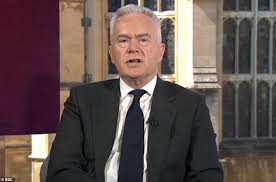
The website ‘reported’: “Huw Edwards has slammed the Times newspaper for claims about the use of Welsh by the world-renowned chemist Professor John Meurig Thomas”.
This article included details of the new guidelines masterminded by BBC Director General Tim Davie which tell presenters: “If your work requires you to maintain your impartiality, don’t express a personal opinion on matters of public policy, politics, or ‘controversial subjects’”.
 The former Editor of NC, Ifan Morgan Jones, even teaches journalism to younger people at a Welsh university!
The former Editor of NC, Ifan Morgan Jones, even teaches journalism to younger people at a Welsh university!
This move towards one-sided, opinionated, ‘news’ ‘journalism’ cannot be disentangled from the push for celebrity ‘news’ and ‘dumbing-down’, not least in Wales.
This sort of ‘trendiness’ is supposed to appeal to younger people, but actually doesn’t.
For instance Paul Rowland who was the ‘Audience And Content Director’ of one of the most important media organisations in Wales, a website called WalesOnline, is a major proponent of this kind of ‘journalism’. He threatened to sue me over an accurate satirical piece on The Eye, about the number of ‘stories’ they had published concerning the opening of a Cardiff bar. In issuing the legal threat, he used the extraordinary words “satire is no defence against libel” when in fact sometimes it can be.
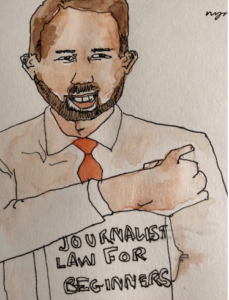 On his website, he advised a reader anxious to break into journalism: “You might not be interested in ’19 mouth watering street food dishes and where to find them in Wales’, and you might believe it’s not something we should be writing (I wouldn’t agree, but that’s fine). That doesn’t mean it’s clickbait.”
On his website, he advised a reader anxious to break into journalism: “You might not be interested in ’19 mouth watering street food dishes and where to find them in Wales’, and you might believe it’s not something we should be writing (I wouldn’t agree, but that’s fine). That doesn’t mean it’s clickbait.”
But it appears that younger people may have aligned themselves with a fight-back among those who think it is important to have media freedom, and be neutral or objective in journalism. The danger is that advocates of ‘moral clarity’ slide self-righteously towards crude subjectivity, yet trying to pursue objectivity and media freedom, also means you must develop a thick skin.
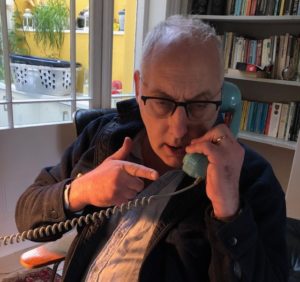
In the past I have been called wrongly on the internet, a “bastard”, a “liar”, a “misogynist”, a “little git”, and accurately, a “troublemaker”, a “nuisance”, “irritating”, as well as “annoying”, by people from all political parties, and warned that I would be ‘whacked’. A long-standing journalist friend of mine, calls social media, “a cess-pit”. I have also been threatened with legal action countless times, yet none of the threats have ever come to anything.
Bari Weiss, a New York Times Editor, resigned, criticising what she said was the new consensus at the paper “that truth isn’t a process of collective discovery, but an orthodoxy already known to an enlightened few whose job is to inform everyone else”. Tom Rosenstiel of the American Press Institute has said: “If journalists replace a flawed understanding of objectivity by taking refuge in subjectivity and think their opinions have more moral integrity than genuine inquiry, journalism will be lost”.

However it seems that REAL moral integrity belongs to younger people – when it comes to climate change, neutrality in news reporting, and the situation in Russia, naming but three…
Tomorrow – how internal sources at Wales’s biggest broadcaster have revealed to The Eye that senior executives and presenters were ‘carpeted’ over their lack of neutrality in social media messages, after last week’s damning report following the Martin Bashir/Princess Diana scandal.
The memories of Phil’s astonishing 38-year award-winning career in journalism (when media freedom and neutrality have been central), as he was gripped by the rare neurological condition Hereditary Spastic Paraplegia (HSP), were released in a major book ‘A GOOD STORY’. Order it now!

Regrettably publication of another book, though, was refused, because it was to have included names.








